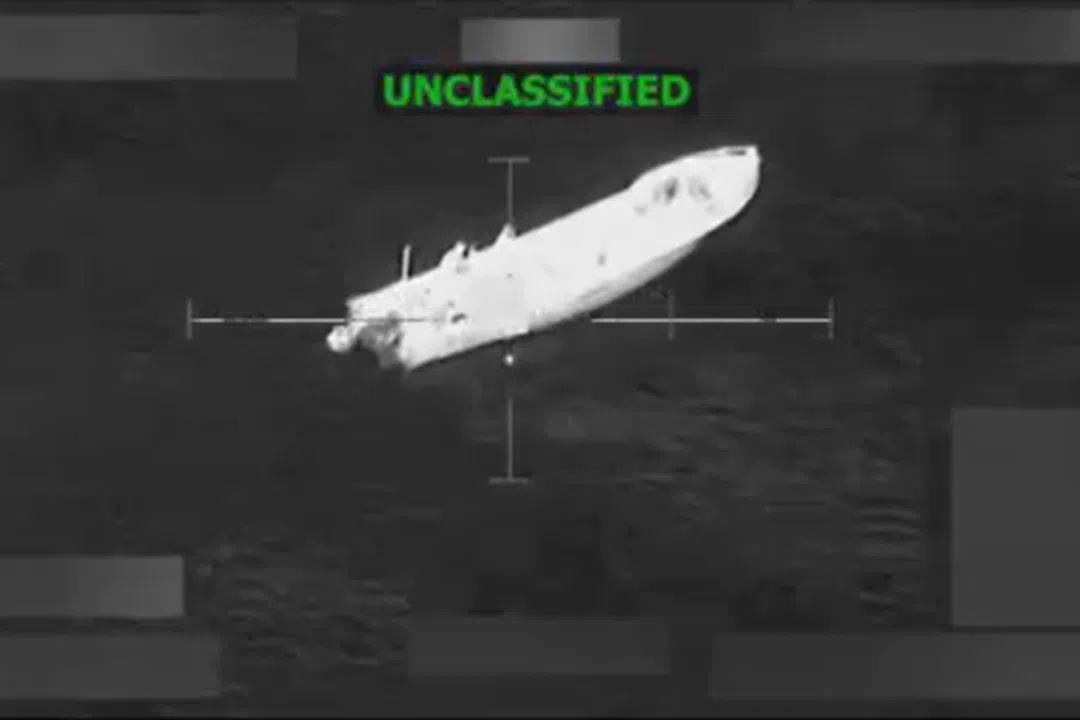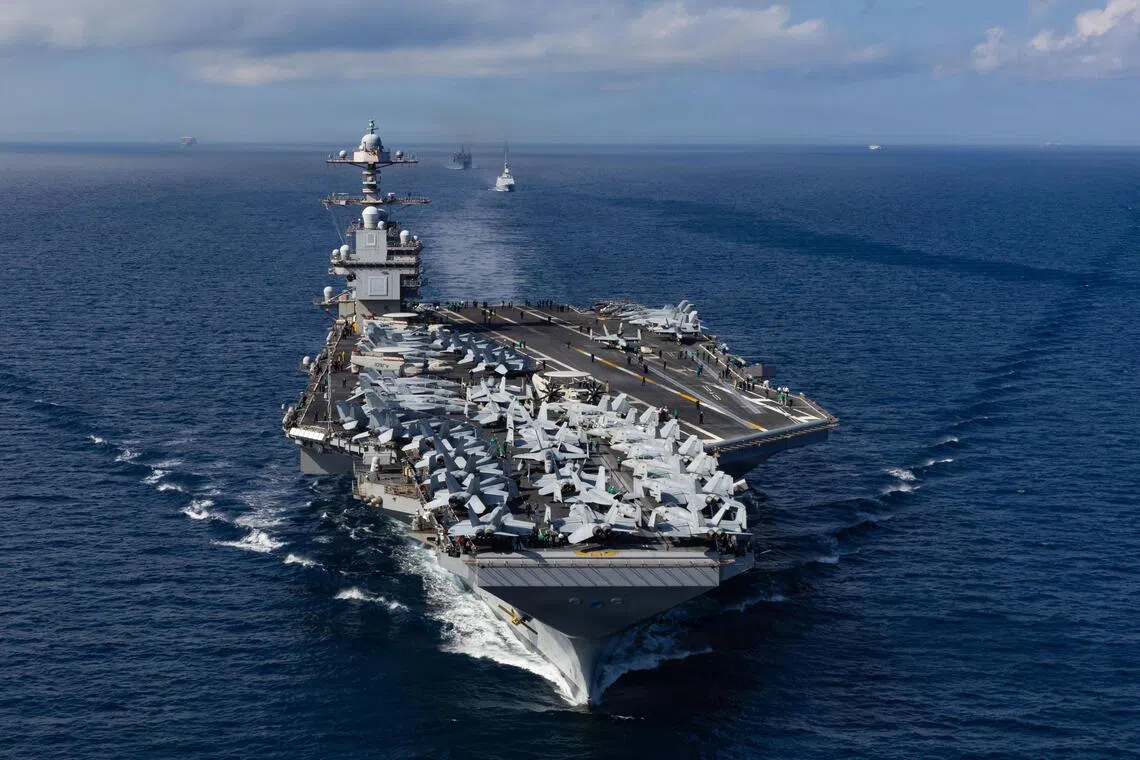29% of Americans support US military killing drug suspects, Reuters/Ipsos poll finds
Sign up now: Get ST's newsletters delivered to your inbox

The US' strikes on vessels have often been touted online by the Trump administration, in videos featuring fiery explosions.
SCREENGRAB: X/@SECWAR
Follow topic:
- A Reuters/Ipsos poll shows only 29% of Americans support using the US military to kill suspected drug traffickers without court involvement.
- The Trump administration has ordered at least 20 military strikes, killing at least 79 people, against suspected drug vessels, drawing condemnation from human rights groups.
- The US military buildup in the Caribbean, including the USS Gerald R. Ford, is escalating tensions with Venezuela, while Trump considers options for removing Maduro.
AI generated
WASHINGTON - Only 29 per cent of Americans support using the US military to kill suspected drug traffickers without a judge or court being involved, a rebuke of President Donald Trump’s strikes in the Caribbean and eastern Pacific Ocean, a Reuters/Ipsos poll found.
The six-day poll, which closed on Nov 12 as Washington continued a military build-up the killings of drug suspects
In a sign of division within Mr Trump’s party, 27 per cent of Republicans in the poll opposed the practice, while 58 per cent supported it, with the rest unsure.
Three quarters of Democrats opposed the practice compared to one in 10 who supported it.
The Trump administration has ordered at least 20 military strikes,
Human rights groups, including Amnesty International, have condemned the strikes as illegal extrajudicial killings of civilians, and some US allies have expressed growing concerns that Washington may be violating international law.
The strikes, which Mr Trump and the Pentagon have often touted in online videos featuring fiery explosions, represent a marked departure from the traditional approach of using the US Coast Guard to intercept maritime drug shipments and prosecute traffickers in court.
The White House says America is at war with drug cartels and courts are not needed in armed conflicts, while also accusing the Venezuelan government of being in league with drug traffickers – a charge Venezuelan President Nicolas Maduro has denied.
Venezuela is preparing its defences in case the US attacks.
Mr Trump has made fighting drug trafficking a core plank of his presidential agenda and has publicly threatened to expand the strikes to include targets inside Venezuela, though more recently the president said he was not considering an imminent attack.
But taking the US into conflict with Venezuela would also run counter to Mr Trump’s campaign pledge to avoid “stupid wars” and, since taking office in January, his touting of his efforts to resolve global crises, for which he says he deserves the Nobel Peace Prize.
One in three support military force in Venezuela
Only 35 per cent of respondents in the Reuters/Ipsos poll said they supported using US military force in Venezuela to reduce the flow of illegal drugs into the United States without the permission of the Venezuelan government.
With more than 5,000 military personnel and dozens of warplanes onboard, the US Navy’s largest and most advanced aircraft carrier, the Gerald R. Ford, and its strike group moved into the Caribbean earlier this week, sharply escalating the military buildup. That added to the eight warships, a nuclear submarine and F-35 aircraft already sent to the region.
Mr Maduro, in power since 2013, says the US build-up is designed to oust him and Mr Trump recently warned that Mr Maduro’s days in power were “numbered.”
Mr Trump confirmed in October that he authorised the Central Intelligence Agency

The US Navy’s largest and most advanced aircraft carrier, the Gerald R. Ford, and its strike group moved into the Caribbean earlier this week.
PHOTO: NYTIMES/ALYSSA JOY
Just 21 per cent of poll respondents said they backed using the US military to remove Mr Maduro, while a somewhat larger share – 31 per cent – said they would support a US effort to get rid of him through non-military means.
Mr Trump administration officials have made no secret of their hope that Mr Maduro’s generals and others will turn on him. In August, the US doubled its reward
The Reuters/Ipsos poll, conducted online, gathered responses from 1,200 US adults nationwide and had a margin of error of three percentage points. REUTERS

